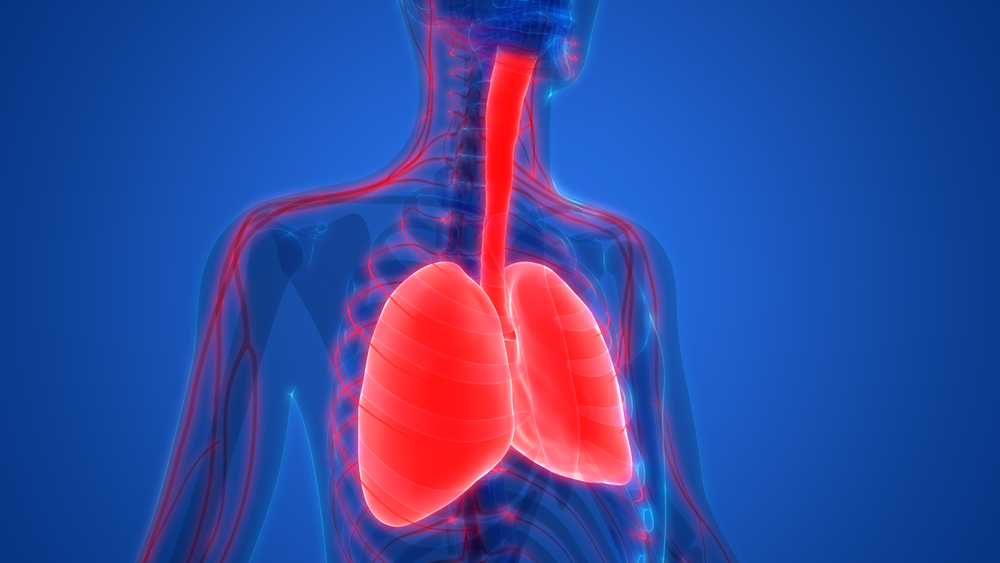Ensifentrine Shows Benefit as Add-on Maintenance Therapy in Phase 2 Trial, Verona Pharma Says
Written by |

Data from a three-day Phase 2 clinical trial offered positive results for nebulized ensifentrine (RPL544) as an add-on treatment for chronic obstructive pulmonary disease (COPD), its developer Verona Pharma announced.
Ensifentrine is an inhibitor of phosphodiesterase (PDE) proteins PDE3 and PDE4, which are involved in smooth muscle contraction and immune cell-derived inflammation, respectively. As such, the dual inhibitor is designed to have bronchodilating and anti-inflammatory properties.
It is currently being developed for the maintenance treatment of COPD, as well as in the treatment of cystic fibrosis and asthma.
The randomized, double-blind Phase 2 trial (NCT03673670) evaluated the effect of two different doses of ensifentrine (1.5 and 6.0 mg), used with Stiolto Respimat — a combination therapy of the bronchodilators tiotropium bromide and olodaterol — against a placebo plus the bronchodilator therapy. Stiolto Respimat is marketed by Boehringer Ingelheim, and is a maintenance treatment for moderate to severe COPD.
The trial was cross-over study, meaning that participants received both doses of the treatment (twice daily), with a seven- to 14-day washout period before and between its respective study arms.
Seventy-nine COPD patients were enrolled, including those using inhaled corticosteroids (40%), who could continue with that treatment. Patients on corticosteroids were allowed to evaluate the effects of a “triple therapy.”
The study’s primary endpoint or goal was lung function improvement in participants after receiving ensifentrine compared with placebo. This was assessed by measuring spirometry-derived FEV1 , which quantifies forced exhaled breath volume in one second.
Results showed that ensifentrine was well-tolerated, and the higher dose (6.0 mg) did not result in added improvements compared with 1.5 mg dose.
Although the 1.5 mg morning dose of ensifentrine improved peak FEV1 compared to placebo, the primary endpoint on the third day (four hours after the morning dose that day) did not meet with statistical significance.
Peak FEV1 after the evening treatment on day three, however, showed significantly improved lung function in patients on both the 1.5 mg and 6.0 mg treatment (130 mL and 81 mL improvement, respectively) compared with placebo.
Lung elasticity — measured by quantifying residual air volume in the lungs after passive exhalation — also improved after treatment with 1.5 mg (259 ml volume reduction) or 6.0 mg (142 ml volume reduction) of ensifentrine.
“The statistically significant reduction observed in residual volume for the ensifentrine 1.5 mg dose at certain time points, which is closely related to dyspnea or breathlessness, highlights the potential for ensifentrine to provide symptomatic improvement for patients with this progressive and debilitating disease,” Dave Singh, MD, a professor of clinical pharmacology and respiratory medicine at the University of Manchester said in a press release.
“Achieving additional bronchodilator response of this magnitude in COPD patients that have previously been considered to be maximally bronchodilated on background dual or triple therapy in a short, three-day study is clinically meaningful and unprecedented,” Singh added.
No safety concerns were seen, with results showing ensifentrine to be well-tolerated overall at both doses.
“Having demonstrated in previous studies the potential of ensifentrine to deliver benefits to patients on no or single bronchodilator therapy, we believe that this short study continues to support our view that ensifentrine may also be of benefit to more severe COPD patients on dual and triple therapy, for whom there are few other treatment options,” said Jan-Anders Karlsson, PhD, CEO of Verona Pharma.
“While we are disappointed that this exploratory Phase 2 study did not achieve statistical significance for its primary endpoint, these data give us clarity on the design, including dose and background therapy, for future long-term studies,” Karlsson added.
Verona Pharma is also evaluating ensifentrine as a dry powder inhaler formulation in a Phase 2 trial, and plans to study a (self-administered) metered-dose formulation. Both forms are as potential COPD maintenance treatments.




